ASTANA – The Astana International Forum (AIF)’s panel session on June 9 on the Middle Corridor, the trans-Caspian transport route that starts from Southeast Asia and China and runs through Kazakhstan to European countries, highlighted the global and regional trends in international trade, challenges related to trade regulations and international agreements along the route, as well as investment and cooperation requirements to create new infrastructure and expand the existing one.
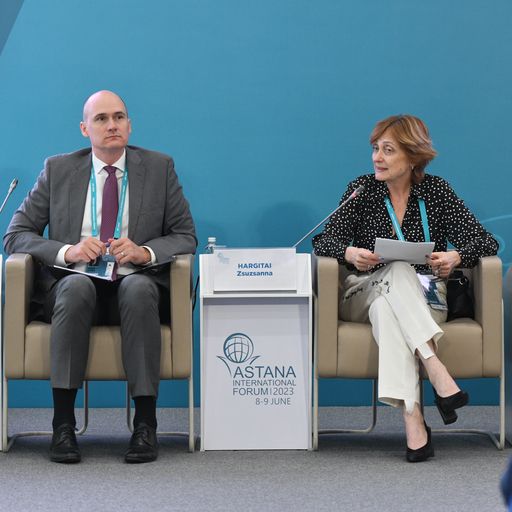
Mirek Dusek and Zsuzsanna Hargitai. Photo credit: AIF.
Shifting trade flows and the global geopolitical environment are forcing countries to find new markets and diversify their traditional trade routes. In this context, the Middle Corridor – which connects Asia and Europe – has become an important route for strengthening the connectivity of the Eurasian continent. Kazakhstan, in turn, can offer its own infrastructure to ensure uninterrupted trade flows along the route, as well as the capabilities of the Astana International Financial Centre to structure deals, attract investments, and facilitate cross-border transactions.
Addressing the session participants, Managing Director of the World Economic Forum, Mirek Dusek, reflected on the shifting trade patterns.
“There is this realization that we are in a kind of a transition economically in the world economy,” he said, warning of a risk of fragmentation despite the growth in global trade, notably between China and Europe, and China and the United States.
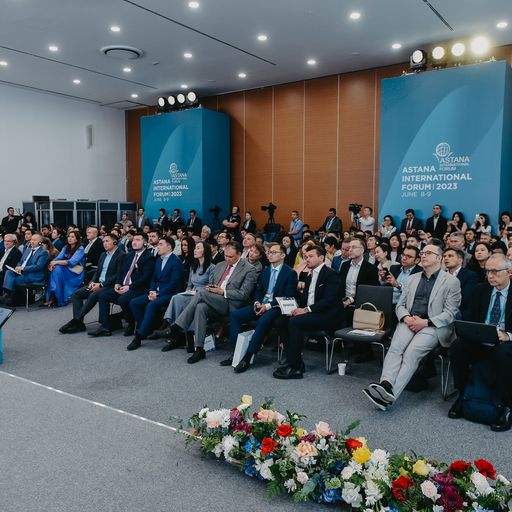
AIF attendees found the session vey informative. Photo credit: AIF.
The participants emphasized the importance of the private sector to create economies of scale around this corridor.
“The more it is connected and the bigger the market around this, the more private sector players will be interested in this environment,” Dusek said.
“It is important to create not only a corridor, but also a market and an economic system,” he said.
Zsuzsanna Hargitai, Managing Director for Central Asia at the European Bank for Reconstruction and Development (EBRD), focused on fiscal affordability, intergovernmental coordination, strengthening coordination and cooperation mechanisms and harmonization of customs and transport documentation, which can increase the efficiency of the existing network.
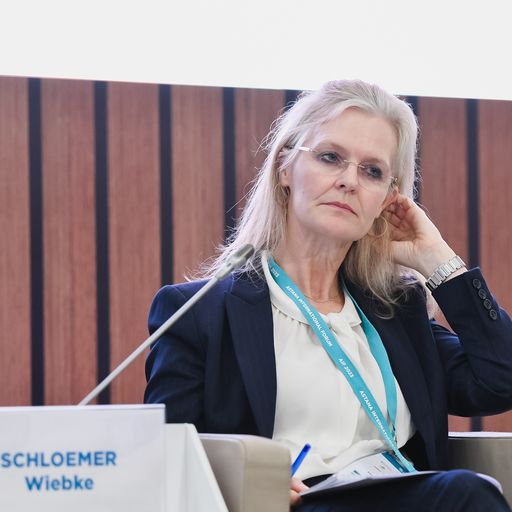
Wiebke Schloemer. Photo credit: AIF.
“It is high time to establish a platform for coordination and action. Governments, stakeholders, operators, and the private sector shall move to action. We would like to support and potentially lead this,” she said.
Wiebke Schloemer, Director for Central Asia and Türkiye at the International Finance Corporation, said there is an increased interest from the private sector and potential investors. However, to attract them it is necessary to provide infrastructure, predictability, cross-border international peace, show commitment and some alignment of interests. In this regard, she emphasized the importance of a high-level intergovernmental platform, tackling challenges through dialogue.
“Start working on concrete projects, show some results and then benefits will come,” she said.
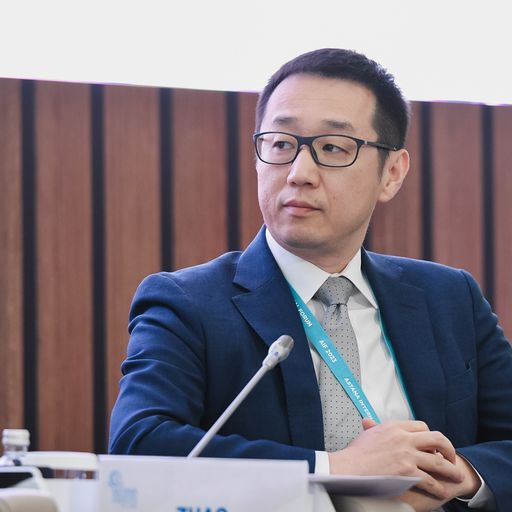
Dr. Yang Zhao. Photo credit: AIF.
Dr. Yang Zhao, Managing Director of China International Capital Corporation Global Institute, noted Kazakhstan’s important role in aligning China’s Belt and Road Initiative (BRI) and the Middle Corridor, noting complementary approaches to developing the economy and promoting sustainability.
“From China’s perspective, the Middle Corridor becomes increasingly important. More than 90% of China’s trade within the BRI passes through Kazakhstan,” he said.
He noted that both countries share a common goal to build infrastructure and increase connectivity between different countries as the foundation of the two projects.
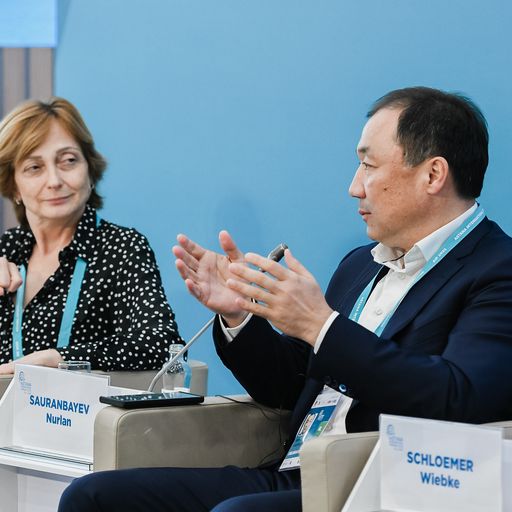
Nurlan Sauranbayev and Zsuzsanna Hargitai. Photo credit: AIF.
Chairman of Kazakhstan Temir Zholy national railway company, Nurlan Sauranbayev, outlined the government’s efforts to eliminate bottlenecks by building approximately 600 kilometers of railroads annually.
The participants also focused on the need to make the project future-oriented, sustainable and part of a green transition.
“It is important that trade becomes greener and a part of this whole momentum toward a net zero economy in the future,” Dusek said.
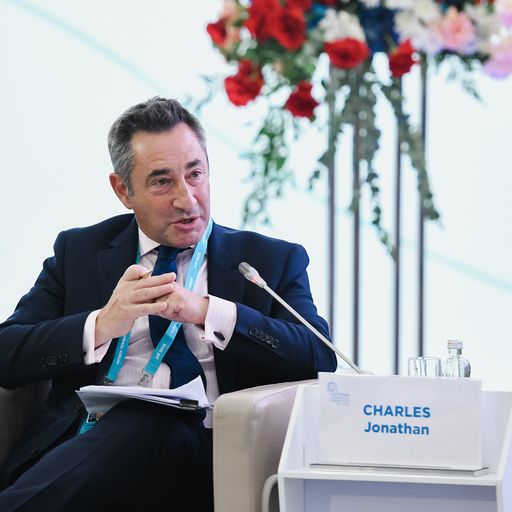
The session was moderated by Jonathan Charles. Photo credit: AIF.
Deployment of digital tools to facilitate trade and policy harmonization was also among key topics.
The session was moderated by Jonathan Charles, former managing director of the communications department at the EBRD, and a former journalist at the BBC.

